
In the book Enlightenment 2.0, Joseph Heath outlines a program for a second Enlightenment. The answer, he argues, lies in a new “slow politics.” It takes as its point of departure recent psychological and philosophical research that identifies the social and environmental preconditions for the exercise of rational thought. It is impossible to restore sanity … Continue reading Enlightenment 2.0: Restoring Sanity to Our Politics, Our Economy, and Our Lives by Joseph Heath (2014)

Street Epistemology is a conversational tool that helps people reflect on the quality of their reasons and the reliability of their methods used to derive their confidence level in their deeply-held beliefs. | Anthony Magnabosco Continue reading What Is Street Epistemology? Anthony Magnabosco

We are moving into a new period of human consciousness which we don’t yet fully understand. When we say a new period of human consciousness, we mean that the perception of the world will be different, at least as different as between the age of enlightenment and the medieval period, when the Western world moved from a religious perception of the … | Henry Kissinger Continue reading We Are Moving Into a New Period of Human Consciousness Henry Kissinger

In this book, The Scout Mindset, Julia Galef explains that we see what we want to see when it comes to what we believe. In other words, we have what Julia Galef calls a “soldier” mindset. From tribalism and wishful thinking to rationalizing in our personal lives and everything in between, we are driven to … Continue reading Scout Mindset: Why Some People See Things Clearly and Others Don’t by Julia Galef (2021)

If you would convince a man that he does wrong, do right. But do not care to convince him. Men will believe what they see. Let them see. | Henry David Thoreau Continue reading Men Will Believe What They See. Let Them See Henry David Thoreau

video player The Future of Reasoning | Michael Stevens Posts where this video is embedded The Argumentative Theory of Human Reason We did not evolve to reason individually but to reason sociallyBooks: Michael Stevens, Dan Sperber, Hugo MercierThe Future of Reasoning Michael StevensVideos: Michael Stevens, Dan Sperber, Hugo MercierThe Future of Reasoning Michael StevensTags: confirmation bias … Continue reading The Future of Reasoning Michael Stevens

Our spoken language allows us to do more than just share information — it enables us to think and reason together. | David Gurteen Continue reading Our Spoken Language Enables Us to Think Together David Gurteen

In this book, The Enigma of Reason, Hugo Mercier and Dan Sperber argue that reason is not geared to solitary use, to arriving at better beliefs and decisions on our own. Reason, we are told, is what makes us human, the source of our knowledge and wisdom. If reason is so valuable, why didn’t it … Continue reading The Enigma of Reason: A New Theory of Human Understanding by Dan Sperber and Hugo Mercier (2018)

My research examines the intuitive foundations of morality. I have found that moral reasoning is generally done post-hoc, to search for confirmation of our fast, automatic intuitive responses. I am therefore skeptical of the power of reasoning to bring us to the right conclusions, particularly when self-interest or reputational concerns are in … | Jonathan Haidt Continue reading Moral Reasoning Is Generally Done Post-hoc Jonathan Haidt

When dealing with people, let us remember we are not dealing with creatures of logic. We are dealing with creatures of emotion, creatures bristling with prejudices and motivated by pride and vanity. | Dale Carnegie Continue reading When Dealing with People, We Are Not Dealing with Creatures of Logic Dale Carnegie

The Argumentative Theory of Human Reason | THUNK Reasoning was not designed to pursue the truth. Reasoning was designed by evolution to help us win arguments. Posts that link to this post What Are Cognitive Biases? Mistakes in reasoning, evaluating or rememberingTags: argument (33) | reasoning (53) | social reasoning (19)Google Web Search Photo Credits: Midjourney ()This … Continue reading The Argumentative Theory of Human Reason Reasoning was designed by evolution to help us win arguments

We have always struggled as human beings. But our struggle today is exacerbated by a gap between the increasingly complicated world we have created and the default ways we think about it. Twenty-first-century challenges are qualitatively different from those that generations of our ancestors faced, yet our thinking has not evolved to keep pace. We … Continue reading Closing the Mind Gap: Making Smarter Decisions in a Hypercomplex World by Ted Cadsby (2014)

And so we need to start talking and listening. And when you talk it doesn’t mean you’re right. It doesn’t mean you’re correct. Right? It means you’re trying to articulate and formulate your thoughts like the boneheaded moron that you are. And you are going to stumble around idiotically because what the hell do you know. You are full of biases, and … | Jordan Peterson Continue reading We Need to Start Talking and Listening Jordan Peterson

Hugo Mercier’s central question is: ‘Do we discuss with each other just to be right, or to actually reason with one another?’ Hugo states that we discuss to persuade others and to judge arguments. By listening to what others have to say, we can evaluate our own thoughts and get to know if we or … Continue reading How and Why We Reason Hugo Mercier (2015)

In this book, The Righteous Mind, Jonathan Haidt shows how moral judgments arise not from reason but from gut feelings. He shows why liberals, conservatives, and libertarians have such different intuitions about right and wrong, and he shows why each side is actually right about many of its central concerns. Credit: Amazon The Righteous Mind … Continue reading The Righteous Mind: Why Good People Are Divided by Politics and Religion Jonathan Haidt (2013)

In this book Enlightenment Now, cognitive scientist Steven Pinker assesses the human condition in the third millennium and urges us to step back from the gory headlines and prophecies of doom, which play to our psychological biases. Instead, follow the data: In seventy-five graphs, Pinker shows that life, health, prosperity, safety, peace, knowledge, and happiness … Continue reading Enlightenment Now: the Case for Reason, Science, Humanism, and Progress by Steven Pinker (2019)

Abstract Reasoning is generally seen as a means to improve knowledge and make better decisions. However, much evidence shows that reasoning often leads to epistemic distortions and poor decisions. This suggests that the function of reasoning should be rethought. Our hypothesis is that the function of reasoning is argumentative. It is to devise and evaluate … Continue reading Why Do Humans Reason? Arguments for an Argumentative Theory Hugo Mercier and Dan Sperber (2010)

Reason is, and ought only to be the slave of the passions, and can never pretend to any other office than to serve and obey them. | David Hume Continue reading Reason Is, and Ought Only to Be the Slave of the Passions David Hume (1739)

Reason tells us that political deliberation would be most fruitful if it treated governance more like scientific experimentation and less like an extreme-sports competition. | Steven Pinker Continue reading Treating Governance Like Scientific Experimentation Steven Pinker

Because so much disagreement remains hidden, our beliefs are not properly shaped by healthy scrutiny and debate. The absence of such argument also leads us to exaggerate the extent to which other people believe the way we do. | Thomas Gilovich Continue reading Our Beliefs Are Not Properly Shaped by Healthy Scrutiny and Debate Thomas Gilovich

In this book, Rebel Ideas, Matthew Syed examines the power of cognitive diversity — the ability to think differently about the world around us. He explains how to harness our unique perspectives, pool our collective intelligence, and tackle the greatest challenges of our age — from climate change to terrorism. AustraliaAustriaBrazilCanadaChinaCzech RepublicEgyptFranceGermanyGlobalIndiaItalyJapanMexicoNetherlandsPolandSaudia ArabiaSingaporeSpainTurkeyUAEUnited KingdomUnited … Continue reading Rebel Ideas: the Power of Diverse Thinking Matthew Syed (2019)

People mistakenly assume that their thinking is done by their head; it is actually done by the heart which first dictates the conclusion, then commands the head to provide the reasoning that will defend it. Credit: Anthony de Mello Comment: This quote reminds us that reasoning often serves to defend conclusions already shaped by the … Continue reading People Mistakenly Assume That Their Thinking Is Done by Their Head Anthony de Mello


In this book, Conflicted, Ian Leslie draws essential lessons on how to disagree well from world-class experts: interrogators, hostage negotiators, divorce mediators, diplomats, and addiction counselors. It tells inspiring stories of productive disagreements, from the invention of the airplane to the success of The Rolling Stones, and combines them with fascinating insights from the science … Continue reading Conflicted: Why Arguments Are Tearing Us Apart and How They Can Bring Us Together by Ian Leslie (2021)

It has been said that man is a rational animal. All my life I have been searching for evidence which could support this. | Bertrand Russell Continue reading It Has Been Said That Man Is a Rational Animal Bertrand Russell

Our research shows that when students learn how to use talk to reason together, they become better at reasoning on their own. | Neil Mercer Continue reading Using Talk to Reason Together Neil Mercer

Teaching critical thinking alone is not a solution to helping people question their beliefs, it simply helps them to better post rationalize their beliefs. Credit: David Gurteen People: David GurteenDavid Gurteen Keynote speaker, writer and conversational facilitatorBooks: David GurteenA Conversation Architect Designs Strategic Conversations David GurteenAPM Conference: Conversational Leadership David Gurteen (2016)Being Truthful Versus Telling … Continue reading Teaching Critical Thinking Alone Is Not a Solution to Helping People Question Their Beliefs David Gurteen

Julia Galef is co-founder of the Center for Applied Rationality. She is a writer and public speaker on the topics of rationality, science, technology, and design. WebsiteJulia GalefWikipediaJulia GalefRSS FeedJulia GalefTwitterjuliagalefYouTubeJulia GalefGoogleJulia Galef Twitter Tweets by Julia Galef RSS FeedPosts: Julia GalefConverse in Good Faith Be sincere, fair, open, and honest, regardless of the outcomeScience … Continue reading Julia Galef Writer and public speaker

Productive disagreement depends on how people feel about each other. We spend a lot of time thinking about how to argue, and not enough on how to shape the relationship that will define how the engagement goes. It’s often said that in order to disagree well, people need to put emotions aside and think purely rationally, but this is a myth. … | Ian Leslie Continue reading Productive Disagreement Depends on How People Feel About Each Other Ian Leslie

video player Why do we believe things that aren’t true? | Philip Fernbach Transcript One Transcript starting at 2:10 to 3:38. (I’ve highlighted some of the text to draw attention to the more pertinent points.) As human beings, false belief is our birthright. It stems from fundamental principles that govern the way our minds work … Continue reading Why Do We Believe Things That Aren’t True? Philip Fernbach (2017)

In these meetings individuals exchange their data, conclusions, reasoning and questions with others. Although the cognitive benefits to the receiver of such an exchange are apparent, there is evidence that it is the speaker who makes the greatest cognitive gains from the exchange. Individuals organize information differently if they are going to … | David W. Johnson and Roger T. Johnson Continue reading It Is in Speaking That We Organize Cognitively What We Know David W. Johnson and Roger T. Johnson

Thinking — or reasoning — involves objectively connecting present beliefs with evidence in order to believe something else. Credit: David T. Moore Comment: True reasoning requires a willingness to adjust our beliefs when faced with compelling evidence, a critical skill in both decision-making and leadership.Books: David T. MooreConnecting Beliefs and Evidence David T. MooreQuotations: David … Continue reading Connecting Beliefs and Evidence David T. Moore

Today humanity is reaching new heights of scientific understanding–and also appears to be losing its mind. How can a species that developed vaccines for Covid-19 in less than a year produce so much fake news, medical quackery, and conspiracy theorizing? In this book Rationality: What It Is, Why It Seems Scarce, Why It Matters, Steven … Continue reading Rationality: What It Is, Why It Seems Scarce, Why It Matters by Steven Pinker (2021)

Intellectual humility is the recognition that our reasoning is so flawed, so prone to bias, that we can rarely be certain that we are right. | Greg Lukianoff & Jonathan Haidt Continue reading Intellectual Humility Greg Lukianoff & Jonathan Haidt

The Knowledge Illusion | Steven Sloman AustraliaAustriaBrazilCanadaChinaCzech RepublicEgyptFranceGermanyGlobalIndiaItalyJapanMexicoNetherlandsPolandSaudia ArabiaSingaporeSpainTurkeyUAEUnited KingdomUnited States As an Amazon Associate, I earn a small commission when you purchase a book via this site. Posts where this book is embedded Knowledge Is Communal Most of our knowledge resides in other people The Knowledge Delusion We know far less than we … Continue reading The Knowledge Illusion: Why We Never Think Alone by Steven Sloman and Philip Fernbach (2018)
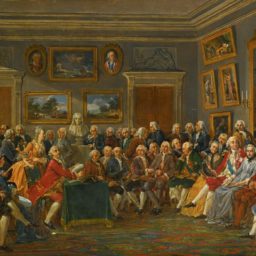
The Enlightenment, known as the “Age of Reason,” was a profound intellectual exploration in the 17th and 18th centuries. It challenged traditional authority by advocating reason, freedom, and secular governance. This shift in thought laid the groundwork for modern political and social structures, emphasizing liberty, progress, and tolerance. Continue reading The Enlightenment The Age of Reason

Chatbots and Genai in Knowledge Management From Mind to Information – the Role of AI in Knowledge Encoding Close Pop-up all posts in this chapter What’s the Vibe? Please be patient as this may take up to a minute to load… Close As AI increasingly shapes our world, we need to consider its effect on … Continue reading Artificial Intelligence and the Quest for Knowledge Exploring the parallels between Plato’s Phaedrus and the challenges of GenAI
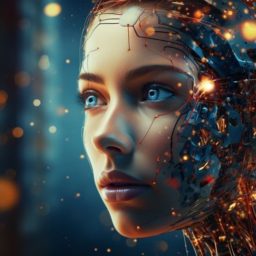
Chatbots to Analyze Conversations and Presentations Evaluate Sources and Evidence Close Pop-up all posts in this chapter What’s the Vibe? Please be patient as this may take up to a minute to load… Close The world faces many intricate challenges that require critical thinking and nuanced analysis. If used creatively, chatbots like ChatGPT, Claude, and … Continue reading Chatbots as Critical Thinking Partners Stimulating critical thinking is one of the most powerful application of chatbots
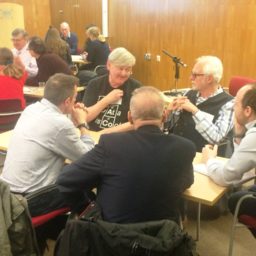
Open Mindedness ** Active Listening ** Close Pop-up all posts in this chapter What’s the Vibe? Please be patient as this may take up to a minute to load… Close Critical thinking objectively analyzes, evaluates, and synthesizes information to form a reasoned judgment or decision. It involves using logic and reasoning to examine assumptions, arguments, … Continue reading Critical Thinking ** Analyzing information and arguments to make sound judgments and decisions
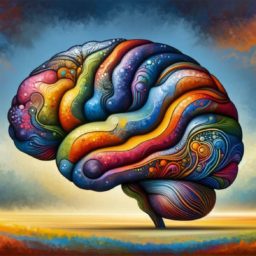
Tacit knowledge is a type of knowledge that is difficult to express or communicate through words. It is a vital component of human expertise and plays a crucial role in enabling us to adapt to new situations, solve complex problems, and drive innovation and progress. Continue reading The Importance of Tacit Knowledge Tacit knowledge is knowledge that is difficult to transfer

There are several ways of attempting to “know something” (acquiring knowledge). Some of them are more reliable than others. Continue reading Ways of Knowing Ways of acquiring knowledge
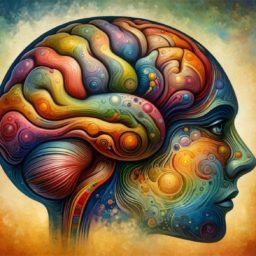
Making sound conclusions is crucial. Distinguishing between deductive, inductive, and abductive reasoning clarifies how we derive these conclusions. Understanding these reasoning forms enhances logical thinking and decision-making. Continue reading Three Forms of Reasoning Understanding deductive, inductive, and abductive logic

Knowledge and Information ** The Knowledge Delusion Close Pop-up all posts in this chapter What’s the Vibe? Please be patient as this may take up to a minute to load… Close The argumentative theory of reasoning proposes that reason did not evolve to help us to reason individually but to reason together – in other … Continue reading The Argumentative Theory of Human Reason We did not evolve to reason individually but to reason socially
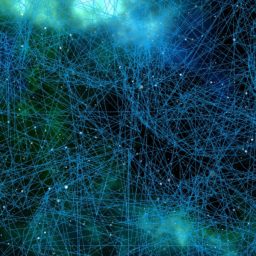
Filter Bubbles, Epistemic Bubbles and Echo Chambers Motivated Reasoning ** Close Pop-up all posts in this chapter What’s the Vibe? Please be patient as this may take up to a minute to load… Close Cognitive biases are mental shortcuts or tendencies that our brain uses to process information and make judgments. They can lead us … Continue reading What Are Cognitive Biases? Mistakes in reasoning, evaluating or remembering

What Are Cognitive Biases? The Difference Between Sense-making and Meaning-making Close Pop-up all posts in this chapter What’s the Vibe? Please be patient as this may take up to a minute to load… Close Motivated reasoning is a cognitive bias in which an individual’s desire to believe or not believe in something influences their interpretation … Continue reading Motivated Reasoning ** Leads people to confirm what they already believe, while ignoring contrary data

Become a Conversation Architect Rediscovering Rhetoric Close Pop-up all posts in this chapter What’s the Vibe? Please be patient as this may take up to a minute to load… Close In education, considerable emphasis is placed on numeracy and literacy — understanding and working with numbers and reading and writing. But what about the capacity … Continue reading Oracy The ability to express oneself in and understand spoken language














